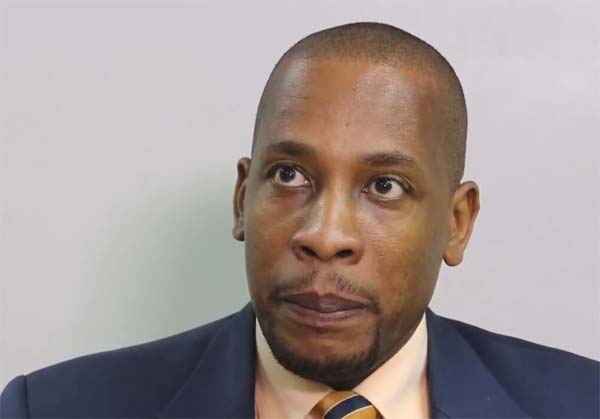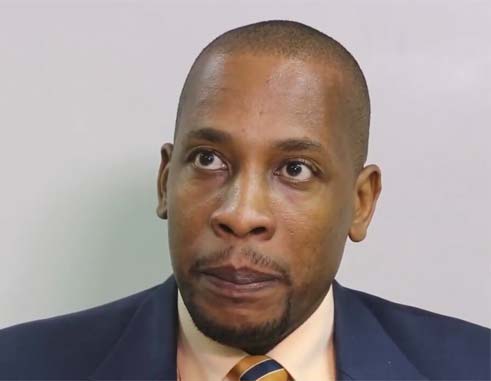
IT will not be business as usual for the citizenry and banks of the Eastern Caribbean Currency Union (ECCU) if the vision of the newly appointed Governor of the Eastern Caribbean Central Bank (ECCB), Mr. Timothy Antoine, is to be realized.
In fact, he has already warned the citizens of the ECCU area not to wait on anyone to do for them the things that they must do.
Antoine took his first day on the job Monday to speak to his staff about his vision and the bank’s role in the ECCU, before sitting down with journalists from the sub-region a few hours later.
Grenada-born Antoine reminded the staff of their role as public servants.
“I reminded them that we are public servants and that we must never take our positions for granted. We must never take the Central Bank for granted. We are accountable to the people of this region,” Antoine told his ECCB colleagues.
He called on them to step up in the pursuit of structural transformation across the region and to rise to the challenges confronting not only the bank but the currency union as well.
“The second key message to my colleagues was that this wass a time of enormous challenge. The Central Bank is called upon to lead the pursuit of structural transformation across our region and we must step up. I recognize that the bank has worked hard and has done a lot of good work, and I also recognize that the times request of us to do more and to rise to the challenges of the day. So I challenge my colleagues to step up,” Antoine said.
However he was adamant that the cause of the bank, though noble and urgent, can only be worked on through collective action, meaning the bank and the citizens of the ECCU working together.
“We cannot do it alone. We need each other and we need to work together. We can only do for ourselves what we can do for ourselves. In other words it is very apparent to me that there are some things that this region must do that require no one to tell us. We ought not to wait on anyone to do what we must do,” Antoine said.
Forewarning that the challenges facing the bank and the ECCU are many and varied, he called for a sense of urgency from the governments in addressing the issues of the day.
Antoine believes that the ECCB must not turn its eyes away from the unemployment situation in the ECCU.
“We want to see people employed. We are particularly concerned about the youth. We understand that if we do not reach out to our youth and provide them with opportunities we are going to lose a generation,” he said, adding that he wants to see people realize their potential in the currency union.
Antoine said part of his vision, was about maintaining the strength of the Eastern Caribbean dollar and ensuring that the financial system of the Organization of the Eastern Caribbean States was strong and resilient.
“When I think of vision I think of what could be and should be,” Antoine said.
He wants public finances to be sustainable and for the people of the sub-region to operate in a very competitive environment “because the rest of the world owes us nothing”.
“They are not waiting on us. We need to understand what type of day it is. We have to be more competitive,” Antoine said pointing to the importance of the region’s single economic and financial space in that regard.
Antoine is the third Governor of the ECCB, taking over from Sir Dwight Venner who held that position from 1989. He assumed the position with the full blessings of the sub-region’s Monetary Council, according to its Chairman, Victor Banks, Chief Minister of Anguilla and the current Chairman of the Council.
According to Banks, Antoine has a great deal of experience in the area of financial management and project management throughout the region.
“We arrived at the conclusion that in this period Antoine is well suited to lead the Eastern Caribbean Central Bank and the ECCU,” Banks said, adding that the ECCB is entering a very important milestone in its history and that Antoine is most suited to the task of leading it during this period. He said that over the years Antoine had been preparing himself for this type of leadership role.















